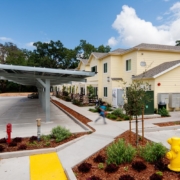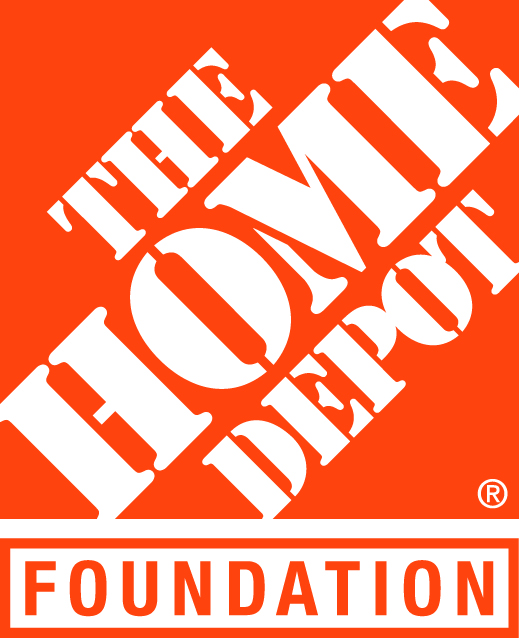HAC News Formats. pdf
September 28, 2018
Vol. 47, No. 20
HAC publishes rental housing preservation study • Housing programs funded to December 7 • Farm Bill may expire September 30 • Legislation would increase affordable housing, including rural and tribal housing • USDA extends some deadlines for rental preservation funding • Researchers look at connection between housing and health • Homeland Security to propose rule limiting admission to U.S. for noncitizens expected to use benefits • Rural Voices reviews “What Broadband Means for Rural America” • USDA offers new web resource for mortgage packagers and intermediaries • CFPB requests comments on data collection • September 15 through October 15 is National Hispanic Heritage Month
HAC News Formats. pdf
September 28, 2018
Vol. 47, No. 20
REGISTRATION IS NOW OPEN FOR THE 2018 HAC RURAL HOUSING CONFERENCE!
The conference will be held December 4-7 at the Capital Hilton in Washington, DC.
HAC publishes rental housing preservation study.
Rental Housing for a 21st Century Rural America: A Platform for Preservation presents HAC’s comprehensive assessment of USDA’s multifamily housing investments. This multifaceted review considers not only the property characteristics, but also the tenant and market dynamics in which these properties exist. The ultimate goal of this project is to inform strategies that help preserve this integral housing resource for rural communities and residents. For more information, contact Lance George, HAC.
Housing programs funded to December 7.
Senate and House negotiators have not yet agreed on some non-housing aspects of the “minibus” bill that combines the USDA and Transportation-HUD appropriations measures with Interior-Environment and Financial Services. As a result, those departments will be funded through December 7 by a continuing resolution included in the appropriations bill for the Labor-HHS-Education and Defense departments.
Farm Bill may expire September 30.
The House and Senate have not yet worked out their differences on H.R. 2, the 2014 Farm Bill expiring September 30. Negotiations will continue, with or without a short-term reauthorization measure. Without one, Farm Bill programs such as SNAP (Food Stamps) and crop insurance can continue so long as they are funded in appropriations measures, but a number of smaller programs cannot. USDA’s rural housing programs are not impacted because they are not generally covered in Farm Bills. The 2014 Farm Bill did allow growing places to remain eligible for the rural housing programs until their populations reach 35,000; that provision made a permanent change in the statutory definition and does not expire if the Farm Bill expires.
Legislation would increase affordable housing, including rural and tribal housing.
The American Housing and Economic Mobility Act, introduced by Senator Elizabeth Warren (D-Mass.) on September 26, would add funding to several existing housing programs. It would provide FY 2019 funding of $140 million for direct Section 502 loans, $28 million for Section 514 loans and $100 million for Section 516 grants, $180 million for Section 515 loans, $75 million for the Section 523 self-help program, and $2.5 billion for Indian Housing Block Grants, as well as $45 billion annually for ten years for the national Housing Trust Fund. Among its other provisions, the bill would also expand the Fair Housing Act to ban discrimination based on sexual orientation, gender identity, marital status, and source of income; strengthen the Community Reinvestment Act; incentivize local governments to remove regulatory and zoning barriers that impact the private sector’s ability to develop rental housing for middle-income people; and create some new housing assistance efforts. The bill’s costs would be covered by reforms to the federal estate tax.
USDA extends some deadlines for rental preservation funding.
A funding notice for USDA’s Multifamily Preservation and Revitalization (MPR) program was published September 5, 2017, establishing deadlines in 2017 and 2018. A new notice extends them into 2019. It also makes the payment deferral-only option available to all owners, not just those with USDA mortgages maturing by 2023. For more information, contact Dean Greenwalt, USDA, 314-457-5933.
Researchers look at connection between housing and health.
Articles in the latest issue of HUD’s Cityscape periodical examine the health impact of interventions targeting specific aspects of housing, state and local efforts to bridge the divide between health and housing, and new evidence on the link.
Homeland Security to propose rule limiting admission to U.S. for noncitizens expected to use benefits.
The “public charge” rule has not yet been officially published in the Federal Register. When it is, the Department of Homeland Security announced, the public will have 60 days to submit comments.
Rural Voices reviews “What Broadband Means for Rural America.”
A new issue of HAC’s Rural Voices magazine explores how local rural housing organizations and local governments can help bring broadband to rural America, increasing the potential for innovation, educational opportunity, and economic growth.
USDA offers new web resource for mortgage packagers and intermediaries.
The new page includes resources for packaging Section 502 direct applications, handouts from past packaging trainings, information on upcoming training sessions, and USDA’s Loan Packaging Express newsletter.
CFPB requests comments on data collection.
A new report, Sources and Uses of Data at the Bureau of Consumer Financial Protection, describes the CFPB’s data governance program as well as what data it collects, where the data come from, and how data are used and reused. The CFPB requests input on several subjects including the overall effectiveness and efficiency of its data collections, suggestions for change, ways to reduce reporting burden and ways to make data collections from financial institutions more effective and efficient. Comments are due in late December.
September 15 through October 15 is National Hispanic Heritage Month.
NEW! HAC offers Section 502 packaging training courses in Nebraska and DC.
This three-day advanced course trains experienced participants to assist potential borrowers and work with RD staff, other nonprofits, and regional intermediaries to deliver successful Section 502 loan packages. The training will be held October 30-November 1 in Lincoln, NE and again December 5-7 in Washington, DC (simultaneously with HAC’s conference). For more information, contact HAC staff, 404-892-4824.
Need capital for your affordable housing project?
HAC’s loan funds provide low interest rate loans to support single- and multifamily affordable housing projects for low-income rural residents throughout the U.S. and territories. Capital is available for all types of affordable and mixed-income housing projects, including preservation, farmworker, senior, and veteran housing. HAC loan funds can be used for pre-development, site acquisition, site development, and construction/rehabilitation. Contact HAC’s loan fund staff at hacloanfund@ruralhome.org, 202-842-8600.
Please note: HAC is not able to offer loans to individuals or families. Borrowers must be nonprofit or for-profit organizations or government entities (including tribes).



 by Moises Loza, HAC’s Executive Director
by Moises Loza, HAC’s Executive Director Supported by The Home Depot Foundation, grants will go to nonprofits, tribally designated housing entities, and housing authorities serving veterans at or below 80% of area median income in rural areas. Projects may be new construction or rehab, temporary or permanent housing, in progress or beginning within 12 months.
Supported by The Home Depot Foundation, grants will go to nonprofits, tribally designated housing entities, and housing authorities serving veterans at or below 80% of area median income in rural areas. Projects may be new construction or rehab, temporary or permanent housing, in progress or beginning within 12 months.